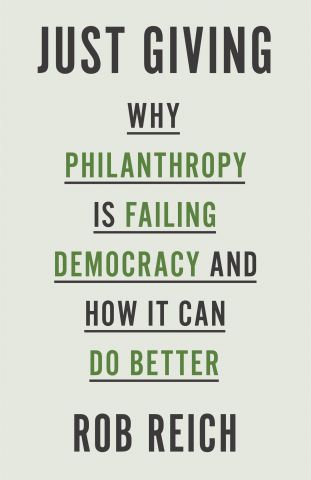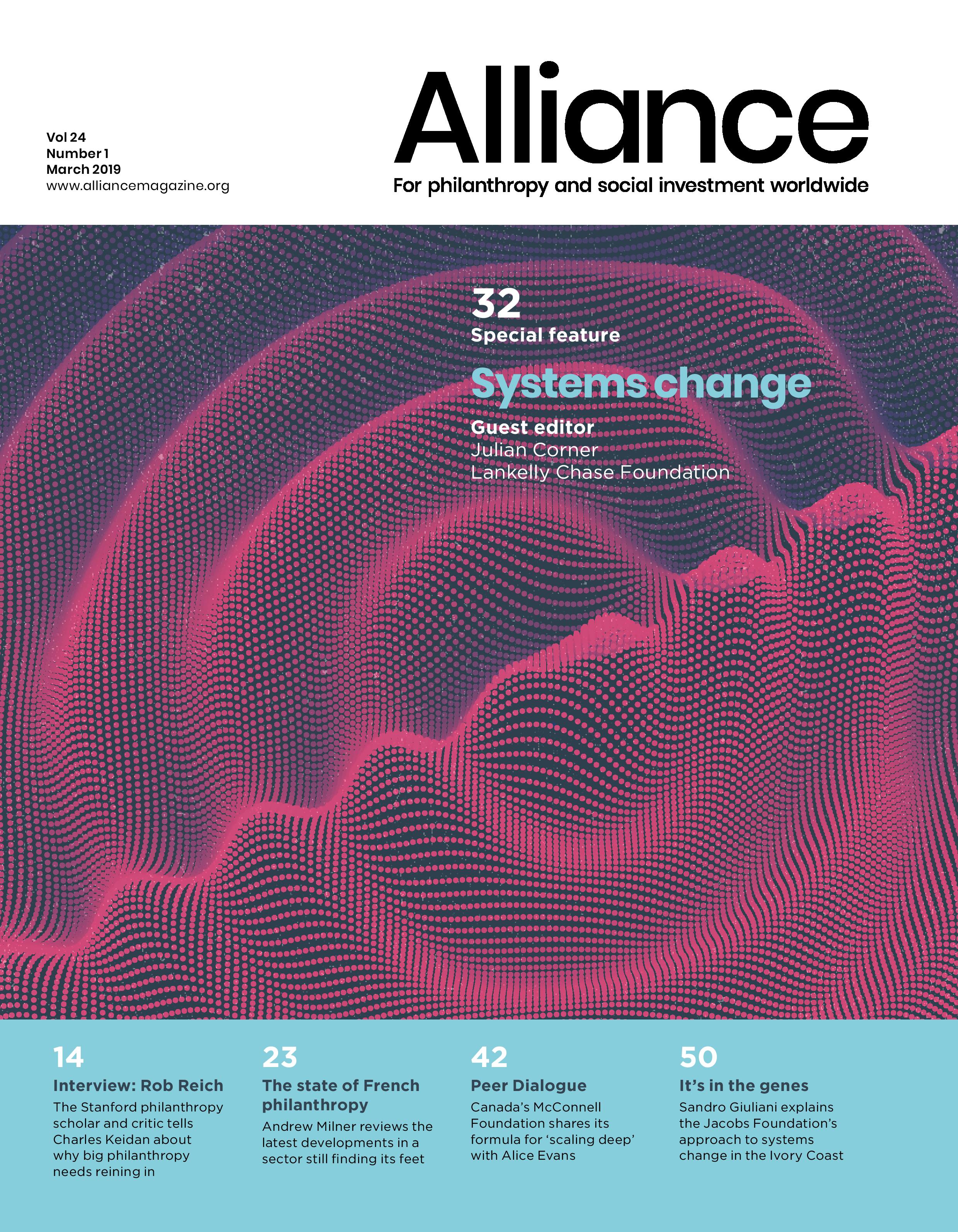 Reviewed by Eva Rehse, Global Greengrants Fund, Europe
Reviewed by Eva Rehse, Global Greengrants Fund, Europe
The latest book by Rob Reich, co-director of the Stanford Center on Philanthropy and Civil Society, is the most recent in a series of examinations on the role of charitable giving in liberal democratic societies and the injustice that corrupts the heart of modern philanthropy. At once less accessible and more ambitious than Anand Giridharadas’ recent Winners Take All: The elite charade of changing the world, Just Giving develops a political theory of philanthropy as a framework for a thorough evaluation and exhaustive critique of the role of philanthropy in modern democracy.
Primarily limiting his focus to the US, Reich depicts the inherent power dynamics within this ‘second golden age of American philanthropy’, in which a large and growing number of contemporary private foundations are essentially ‘institutional oddities in democracy’ – too often unaccountable and non-transparent in their work and motivations, donor-directed, and privileged by tax advantages. The question at the heart of Just Giving is whether this type of ‘Big Philanthropy’ is compatible with the ideals of liberal democracies.
With its in-depth, clinical analysis, the book forces anyone engaged in philanthropy to take an honest look at their institutions, ethics and practices. Reich shows that philanthropy is always and inherently political, and an expression of power that can be indifferent to equality, or at its worst, cause inequalities. Raising questions regarding the public morality of a charitable giving that ultimately entrenches the privilege of the wealthy elites rather than tackles the root causes of societal ills, a large part of the book is dedicated to analysing the legal rules that structure and encourage this philanthropic activity in the US today, and whether these are compatible with justice and democracy. Based on a detailed dissection of existing US tax laws incentives, Reich asks what kinds of institutional arrangements should define and structure philanthropy, and how the state and philanthropic practice ought to interact in an ideal scenario.
Satisfyingly, Reich begins to develop the cornerstone of what philanthropy in democratic societies should look like, one that is rooted in the spirit of intergenerational justice and based on the motivation to redress systemic injustices. Reich suggests what would be a sharp departure from how much of philanthropy is organised in its current form, not just in the US. In this vision, there is a place for foundations that encourage social policy experimentation and innovation, and thus are an asset to democratic processes, rather than propping up existing inequalities.
Ultimately, Just Giving is a call to academia and journalists, and one might add, to all of us working in philanthropy, to analyse our institutions and approaches in a more mindful and serious manner, and in doing so, Reich suggests an alternative political philosophy to underpin our theory of philanthropy. This book provides crucial arguments for the role philanthropy can and should play in liberal democracies, and why the systems that incentivise it need to change. It is an important read for anyone engaged in philanthropy who desires to change what is wrong with it.
About the book
Published by: Princeton University Press
Price: $27.95 (Hardcover)
ISBN: 9780691183497
To order: https://press.princeton.edu/titles/14186.html






Comments (1)
Charity activities are really important for the less fortunate to have more motivation and conditions to rise up